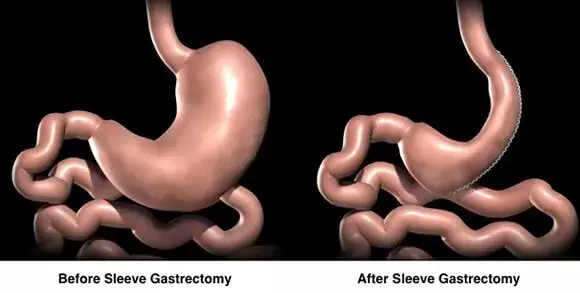- Home
- Medical news & Guidelines
- Anesthesiology
- Cardiology and CTVS
- Critical Care
- Dentistry
- Dermatology
- Diabetes and Endocrinology
- ENT
- Gastroenterology
- Medicine
- Nephrology
- Neurology
- Obstretics-Gynaecology
- Oncology
- Ophthalmology
- Orthopaedics
- Pediatrics-Neonatology
- Psychiatry
- Pulmonology
- Radiology
- Surgery
- Urology
- Laboratory Medicine
- Diet
- Nursing
- Paramedical
- Physiotherapy
- Health news
- Fact Check
- Bone Health Fact Check
- Brain Health Fact Check
- Cancer Related Fact Check
- Child Care Fact Check
- Dental and oral health fact check
- Diabetes and metabolic health fact check
- Diet and Nutrition Fact Check
- Eye and ENT Care Fact Check
- Fitness fact check
- Gut health fact check
- Heart health fact check
- Kidney health fact check
- Medical education fact check
- Men's health fact check
- Respiratory fact check
- Skin and hair care fact check
- Vaccine and Immunization fact check
- Women's health fact check
- AYUSH
- State News
- Andaman and Nicobar Islands
- Andhra Pradesh
- Arunachal Pradesh
- Assam
- Bihar
- Chandigarh
- Chattisgarh
- Dadra and Nagar Haveli
- Daman and Diu
- Delhi
- Goa
- Gujarat
- Haryana
- Himachal Pradesh
- Jammu & Kashmir
- Jharkhand
- Karnataka
- Kerala
- Ladakh
- Lakshadweep
- Madhya Pradesh
- Maharashtra
- Manipur
- Meghalaya
- Mizoram
- Nagaland
- Odisha
- Puducherry
- Punjab
- Rajasthan
- Sikkim
- Tamil Nadu
- Telangana
- Tripura
- Uttar Pradesh
- Uttrakhand
- West Bengal
- Medical Education
- Industry
Surgical techniques do matter in laproscopic sleeve gastrectomy: JAMA

In a video review of surgeons performing laparoscopic sleeve gastrectomy procedures, researchers have found certain techniques were associated with better or worse outcomes, regardless of skill. The study details were published in the JAMA Surgery on December 16, 2020.
In any surgical procedure, various aspects of technique may affect the patient outcomes. As new procedures enter practice, it is difficult to evaluate the association of each aspect of technique with patient outcomes. The study of outcomes has become essential for guiding quality-of-care assessments. Researchers of Brigham and Women's Hospital in Boston assessed surgeons' varying technical approaches in dissecting the proximal stomach, sleeve caliber, sleeve anatomy, staple line reinforcement, and leak testing.
It was a comparative cohort review study of video operations performed by 30 different surgeons on 6915 patients with morbid obesity. Researchers used two complementary sources of data from the Michigan Bariatric Surgery Collaborative to obtain data on patient characteristics, operations, and subsequent outcomes. They collected intraoperative videos of laparoscopic sleeve gastrectomies between 2015 and 2016 that were voluntarily submitted by surgeons, each surgeon usually submitting about one or two videos. These videos were reviewed by blinded peer surgeons on key technical elements, and 605 reviews were linked to sleeve gastrectomy outcomes of all of the surgeons' patients. The major outcome assessed was the rate of postoperative hemorrhage and staple line leak after 30 days of surgery. Researchers also assessed the percentage of total weight lost and reflux severity 1 year after the surgery.
Key findings of the study were;
♦After assessing the videos the researchers found higher ratings for complete mobilization of fundus were tied to a significant decrease in 30-day hemorrhage rate, dropping from 2.1% down to 1.0% but associated with higher leak rates from 0.05% to 0.16%
♦Additionally, they found higher ratings for visualization of the left crus were associated with a decrease in hemorrhage rate from 1.5% to 0.94%and with an increase in leak rate from 0.1% to 0.2%.
♦They also noted higher ratings for a complete division of the short gastrics were associated with a decrease in hemorrhage rate from 2.8% to 1.2% with an increase in leak rate from 0.02% to 0.1%
♦They observed surgeons who stapled more tightly to the bougie had smaller decreases in reflux than those who stapled less tightly.
♦They found Staple line reinforcement (buttressing and oversewing) was associated with a small (2 of 1000 cases) decrease in hemorrhage rates and Staple line buttressing was also associated with a similarly small increase in leak rates but was found to be statistically insignificant.
"The clearest signal we got from the study is that completely dissecting out the proximal stomach is essential -- it is associated with better weight loss and reflux outcomes as well as lower bleeding rates," Chhabra told in an interview.
The authors concluded that Variations in surgical technique can be measured by video review and it helps to improve the quality of surgical care and outcomes for patients everywhere.
For further information:
https://jamanetwork.com/journals/jamasurgery/article-abstract/2773954
Dr Kartikeya Kohli is an Internal Medicine Consultant at Sitaram Bhartia Hospital in Delhi with super speciality training in Nephrology. He has worked with various eminent hospitals like Indraprastha Apollo Hospital, Sir Gangaram Hospital. He holds an MBBS from Kasturba Medical College Manipal, DNB Internal Medicine, Post Graduate Diploma in Clinical Research and Business Development, Fellow DNB Nephrology, MRCP and ECFMG Certification. He has been closely associated with India Medical Association South Delhi Branch and Delhi Medical Association and has been organising continuing medical education programs on their behalf from time to time. Further he has been contributing medical articles for their newsletters as well. He is also associated with electronic media and TV for conduction and presentation of health programs. He has been associated with Medical Dialogues for last 3 years and contributing articles on regular basis.
Dr Kamal Kant Kohli-MBBS, DTCD- a chest specialist with more than 30 years of practice and a flair for writing clinical articles, Dr Kamal Kant Kohli joined Medical Dialogues as a Chief Editor of Medical News. Besides writing articles, as an editor, he proofreads and verifies all the medical content published on Medical Dialogues including those coming from journals, studies,medical conferences,guidelines etc. Email: drkohli@medicaldialogues.in. Contact no. 011-43720751


